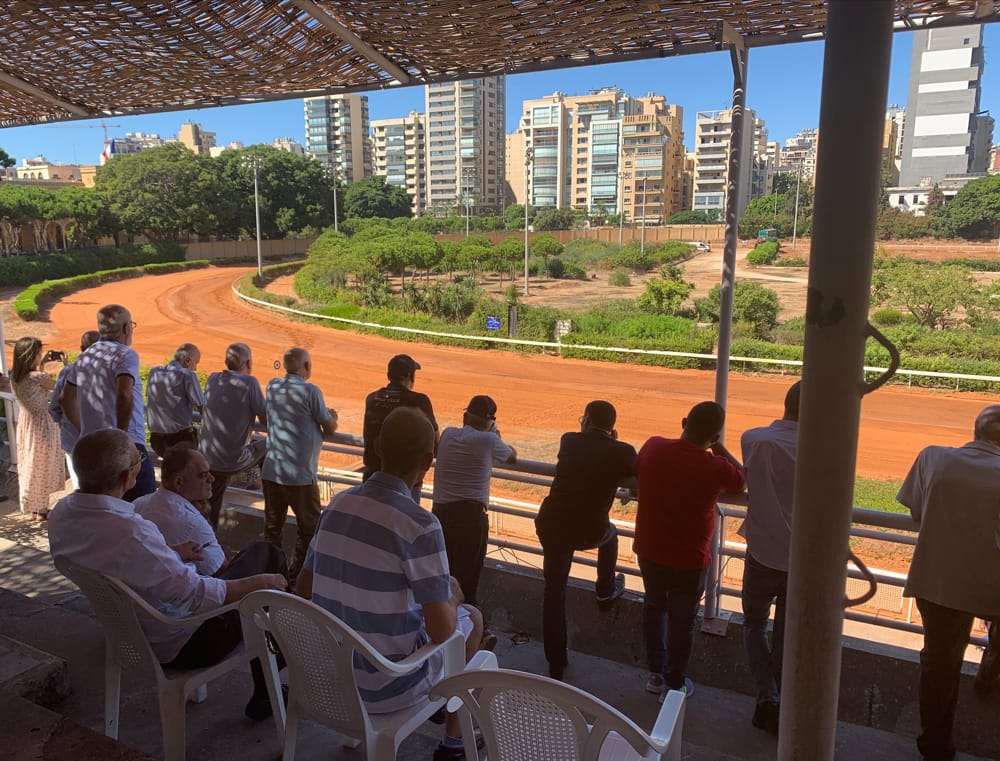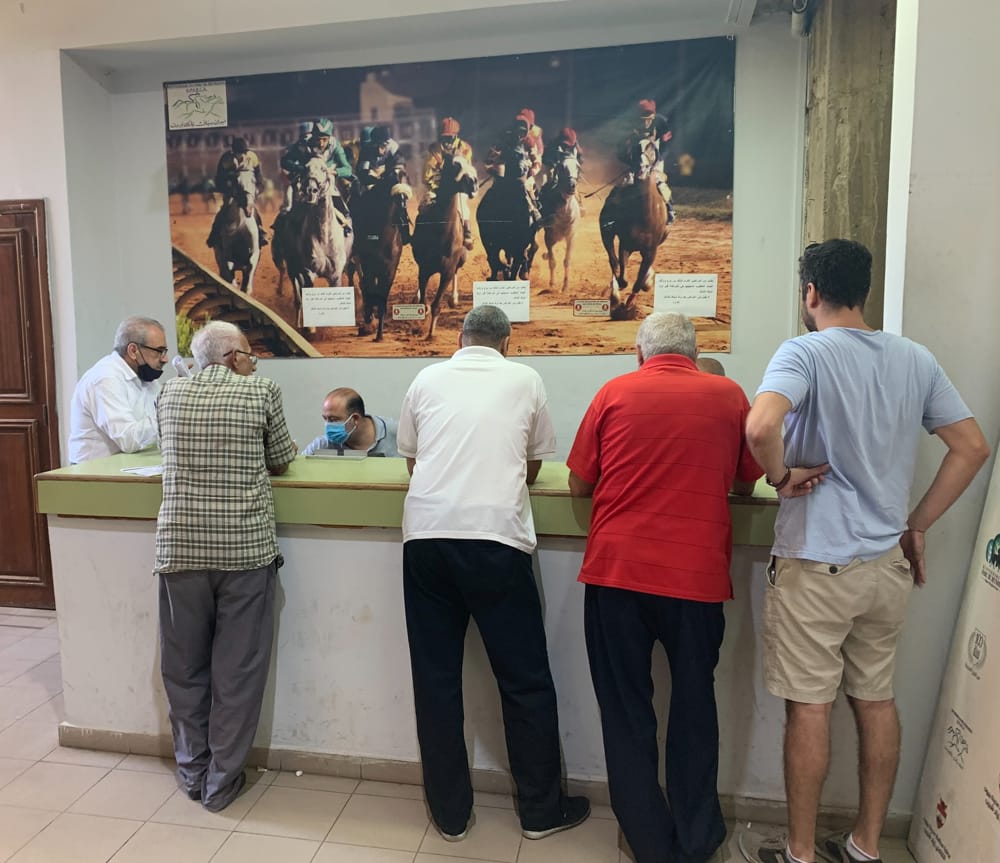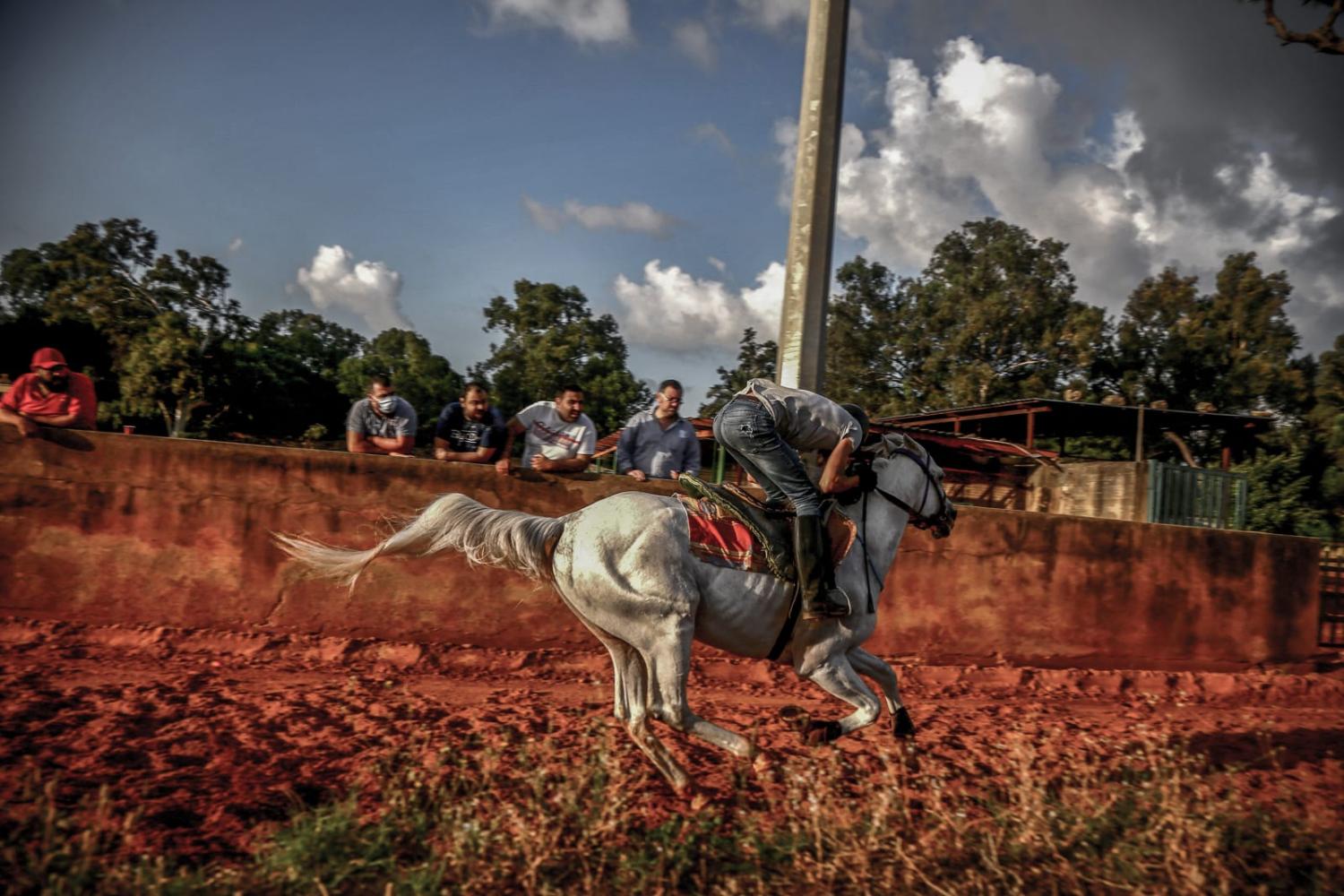I have often gone past the Beirut horse racing track but had never gone in – until my last visit. Conveniently located adjacent to the national museum and with a weekly five-race program run on Sundays, it made sense to combine Lebanon’s millennia-old history on display at the museum with a trip to see the country’s century-long history of racing dating back to the Ottoman empire.
Racing in Beirut is not what it once was – the long civil war, invasion and regional proxy conflicts have seen the Beirut Hippodrome, home of the track, fall on hard times. Nor is it nowadays remotely the sport of kings. There are no fashions on the field or flashy fascinators – it is more the preserve of middle-aged men who seek some relief from the chaos of the outside world by sequestering themselves in one of the few open public spaces the capital has to offer. Concrete stands with concrete steps, and a spot where you can sit on a white plastic chair if you can get hold of one.

It wasn’t immediately apparent until they refused to sell me a ticket, but entry for foreigners is free. The attendant at the vehicle entry helpfully appraised me of this fact, pointed me in the right direction and told me to tell the people at the next gate that “Elli sent me.” Sure enough, that proved adequate validation, and after writing my name and that of my two friends in a nondescript exercise book, we were admitted.
Once inside, you can peruse the form guide and inspect the Arabian horses in the mounting yard. It doesn’t take too long as the fields are normally only five strong (although Race 2 on the day I went dwindled to three by the time it ran). With a betting slip in one hand, a cold can of Almaza beer in the other, and some passive smoking courtesy of the shisha pipes that surrounded us, we made our way into the crowd, which was as animated as those at any other racecourse around the world.
Race 1 at Royal Beirut races 26/9. For the record we picked the winner. pic.twitter.com/9aPaI0WSI9
— Rodger Shanahan (@RodgerShanahan) September 25, 2022
For a country that has been invaded, attacked, wracked by civil war, foreign meddling and political incompetence, with its economy now in collapse, the fact that horse racing still operates, let alone in the middle of the city, is amazing. Like much of Beirut, the Hippodrome represents a slice of the city’s faded glory, while its ability to survive what external powers and Lebanon’s ruling class has thrown at it is also testament to the local penchant for surviving amid adversity.
For the record, we backed the winner in the first two races. But when you’re betting Lebanese pounds and the inflation rate for the year is set to be more than 170 per cent, we won’t be retiring just yet.


